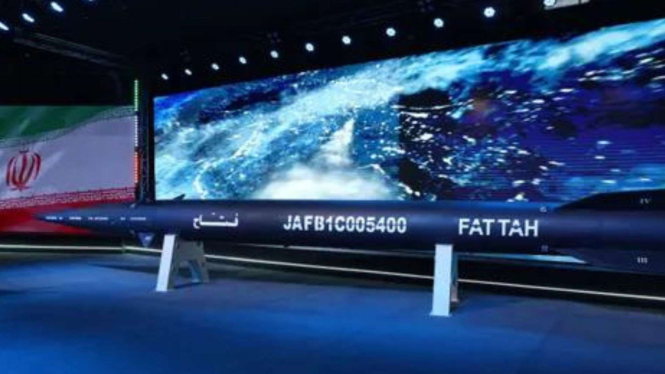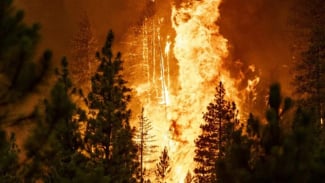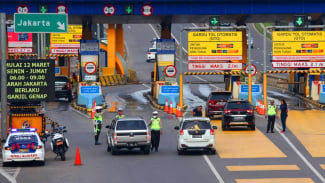- The Guardian
VIVA – Iran has just introduced its first domestically-made hypersonic ballistic missile on Tuesday, the official IRNA news agency reported.
Iranian state media published images of the missile, named "Fattah" or "Conqueror" in Farsi, in a ceremony attended by President Ebrahim Raisi and commanders of Iran's elite Revolutionary Guard Corps.
"The precision-guided Fattah hypersonic missile has a range of 1,400 km, and is capable of penetrating all defense shields," said Amirali Hajizadeh, head of the Iranian Revolutionary Guard's aerospace forces, as quoted by Iranian state media.
These hypersonic missiles can fly at least five times faster than the speed of sound and in complex trajectories, making them difficult to intercept. Last year, Iran said it had built a hypersonic ballistic missile that could maneuver inside and outside the atmosphere.
Misil
- 1486560
State TV said Iran's Fattah missile can target "the enemy's advanced anti-missile system and is a huge generational leap in the missile field,"
"It can bypass the most advanced anti-ballistic missile systems of the United States (US) and the Zionist regime, including Israel's Iron Dome," Iranian state TV said.
Fattah's top speed reaches Mach 14 level (15,000 km/h), it added.
Despite opposition from the US and Europe, the Islamic Republic says it will continue to develop its defensive missile program. However, Western military analysts say that Iran sometimes exaggerates its missile capabilities.
Concerns about Iran's ballistic missiles contributed to United States President Donald Trump's decision in 2018 to scrap Tehran's 2015 nuclear pact with six major powers.
Trump reimposed US sanctions on Iran after exiting the nuclear pact, allowing Tehran to resume previously banned nuclear work and reviving US, European and Israeli concerns that Iran may be building or seeking an atomic bomb. Iran has consistently denied such ambitions.
Indirect talks between Tehran and US President Joe Biden's administration to salvage the nuclear deal have been stalled since September 2022.
Israel, which the Islamic Republic rejects, opposes efforts by world powers to revive Tehran's nuclear deal and has long threatened military action if diplomacy fails.






























